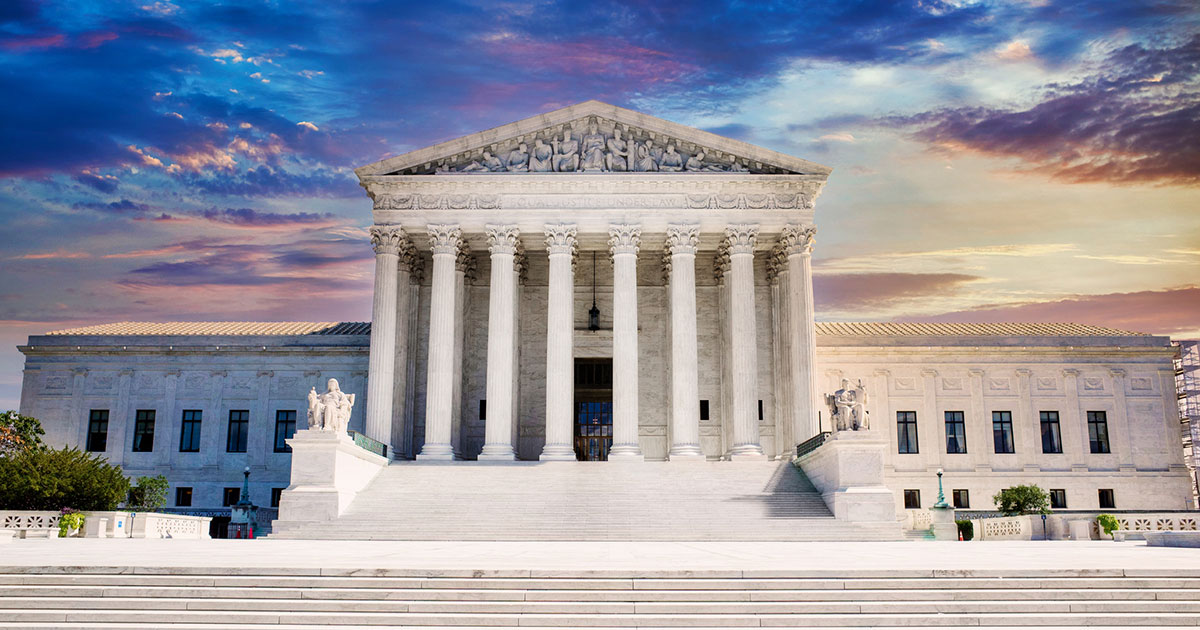
July 3, 2024 – The U.S. Supreme Court recently issued a decision with significant impacts for regulatory attorneys who deal with federal agency regulations. The decision was one of 59 majority or unanimous opinions issued by the court.
In
Loper Bright Enterprises v. Raimondo (June 28, 2024), a 6-3 majority ruled that courts may not defer to agency interpretations of the law when a statute the agency administers is ambiguous. Instead, courts must exercise independent judgment in determining whether an agency has acted within its statutory authority.
Amy Howe, writing for SCOTUS Blog, said the decision “will likely have far-reaching effects across the country, from environmental regulation to healthcare costs.”
The ruling overturns
Chevron U.S.A. Inc. v. Natural Resources Defense Council, Inc., 467 U.S. 837 (1984).
Chevron, decided unanimously (6-0),1 required courts to uphold agency interpretations of the law “if based on a permissible construction of the statute.”
 Joe Forward, Saint Louis Univ. School of Law 2010, is communications director for the State Bar of Wisconsin, Madison. He can be reached by
email or by phone at (608) 250-6161.
Joe Forward, Saint Louis Univ. School of Law 2010, is communications director for the State Bar of Wisconsin, Madison. He can be reached by
email or by phone at (608) 250-6161.
Chief Justice John Roberts, who wrote the majority opinion in
Loper Bright Enterprises, said
Chevron was “fundamentally misguided” and “unworkable” because “the concept of ambiguity has always evaded meaningful definition.”
“One judge might see ambiguity everywhere; another might never encounter it,” Chief Justice Roberts wrote. “A rule of law that is so wholly ‘in the eye of the beholder’ invites different results in like cases and is therefore ‘arbitrary in practice.’”
The Wisconsin Supreme Court eliminated deference to state agencies’ conclusions of law six years ago in
Tetra Tech EC, Inc. v. Wisconsin Dep’t of Revenue, 2018 WI 75 (2018). At the time,
observers commented that the Tetra Tech decision “marks a sea change in Wisconsin administrative law” but thought application may be challenging because the court was “fractured in its reasoning.” Three concurrences were filed.
In
Loper Bright Enterprises, Justice Clarence Thomas filed a concurring opinion, as did Justice Neil Gorsuch. Justice Elena Kagen filed a dissent, joined by Justice Sonia Sotomayor and Justice Katanji Brown Jackson (as to one consolidated case).
Thomas agreed that
Chevron should be overruled. He wrote separately “to underscore a more fundamental problem: Chevron deference also violates our Constitution’s separation of powers, as I have previously explained at length.”
Learn more about recent significant U.S. Supreme Court decisions in 2024. This 4.5 CLE program from State Bar of Wisconsin PINNACLE® takes place in person Friday, Aug. 2, 2024, 8:15 a.m. to 12:15 p.m. at the State Bar Center in Madison; and via webcast on specific dates August through November. Visit WisBar's Marketplace for more information and to reserve your spot.
Gorsuch said Chevron’s tombstone “returns judges to interpretive rules that have guided federal courts since the Nation’s founding” and wrote separately “to address why the proper application of the doctrine of stare decisis supports that course.”
The dissenters would have upheld
Chevron. “There are no special reasons, of the kind usually invoked for overturning precedent, to eliminate Chevron deference,” wrote Justice Elena Kagen. “And given
Chevron’s pervasiveness, the decision to do so is likely to produce large-scale disruption.
“All that backs today’s decision is the majority’s belief that Chevron was wrong—that it gave agencies too much power and courts not enough.”
Decisions of the Term (5-4 or 6-3 Decisions)
Endnotes
1 Justice Thurgood Marshall, Justice William Rehnquist, and Justice Sandra Day O’Conner did not participate.
